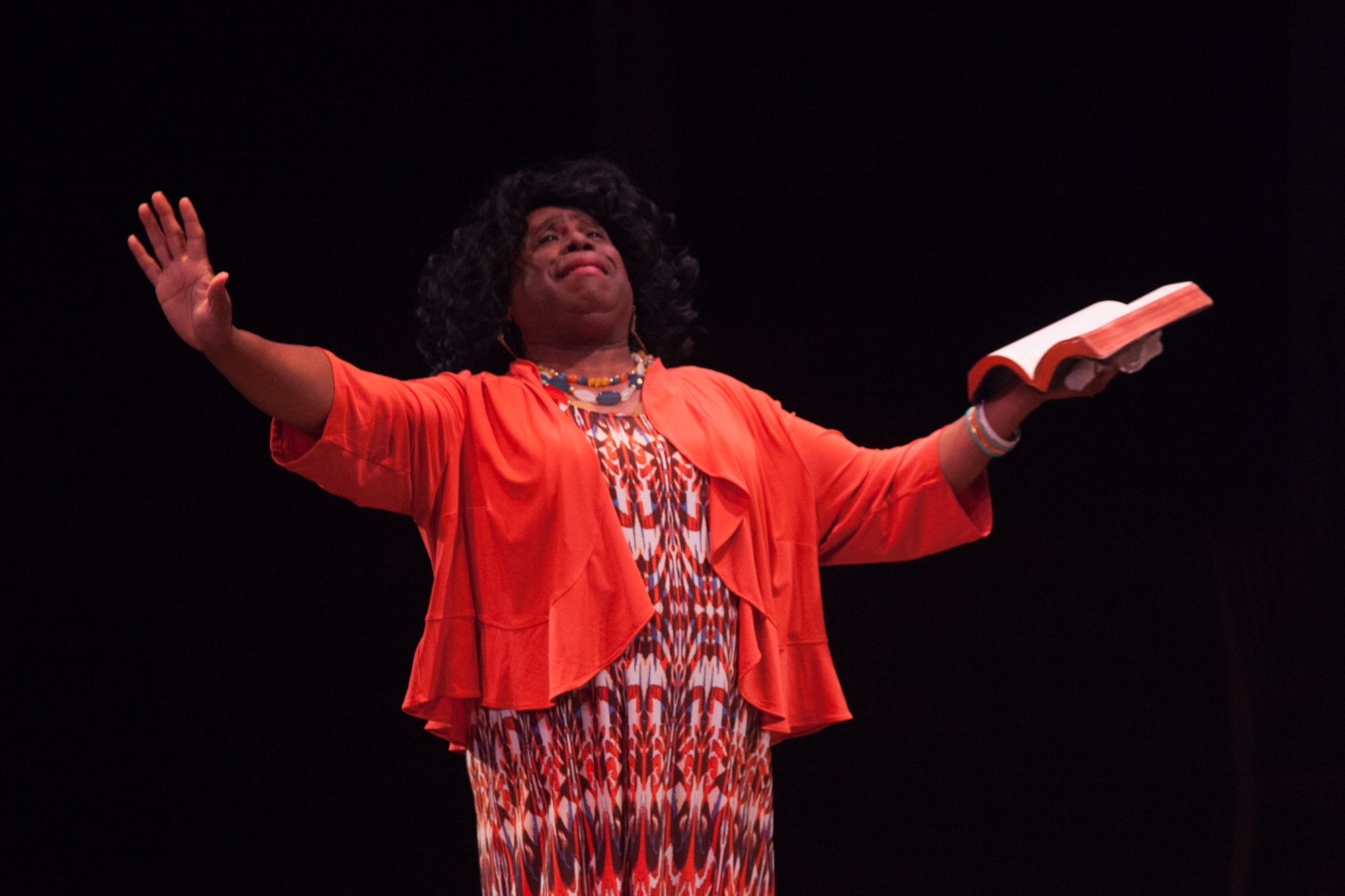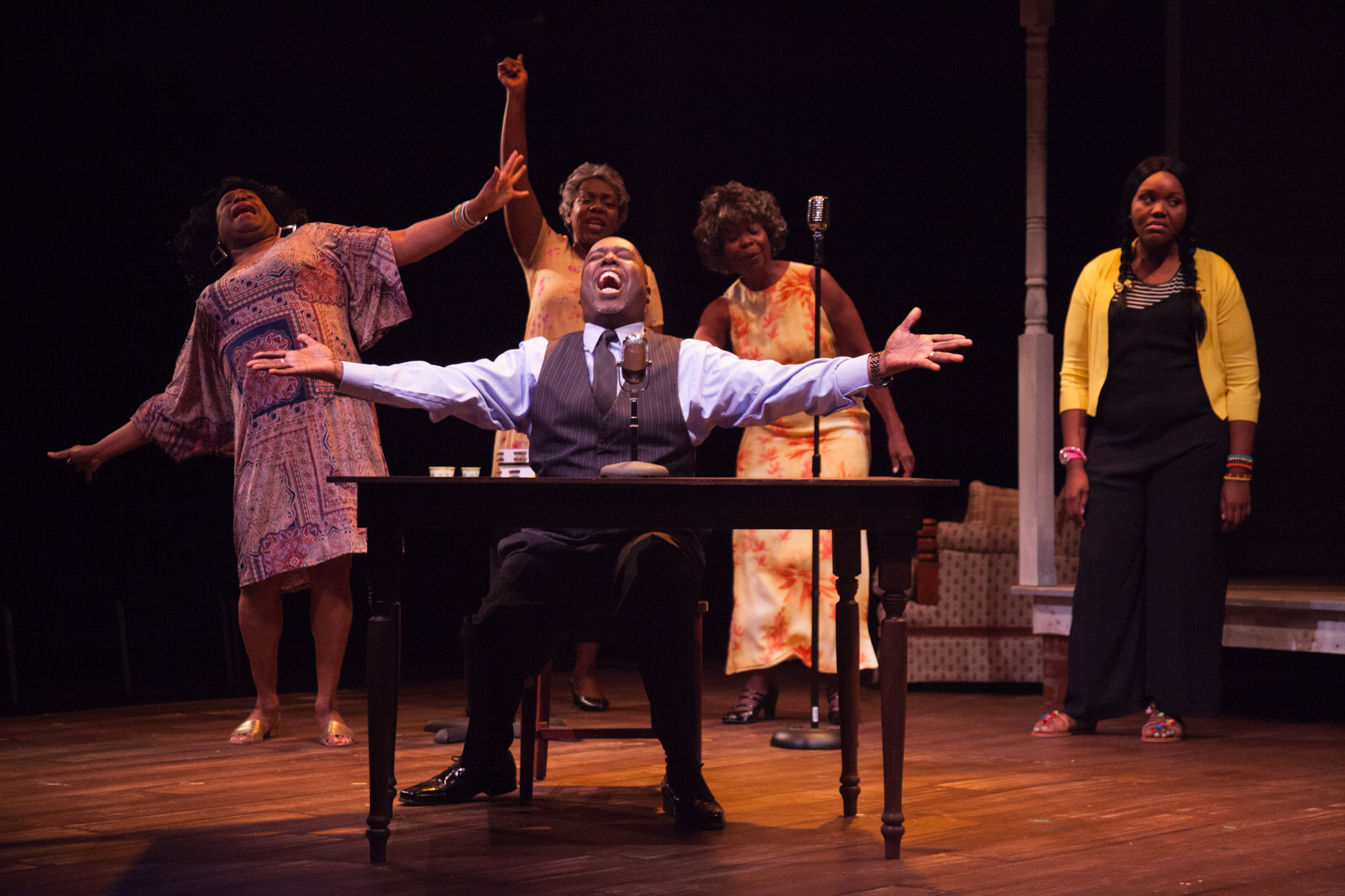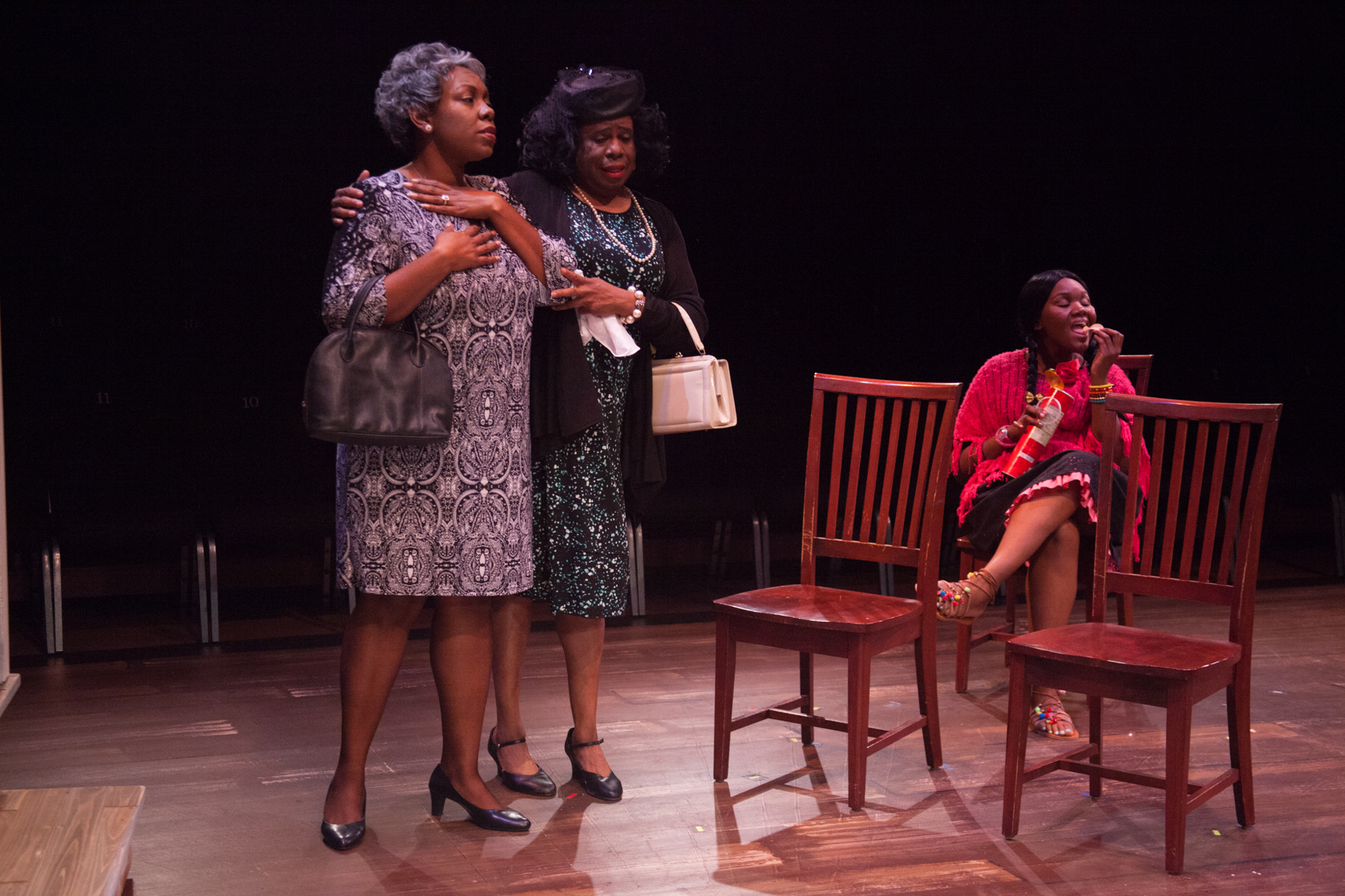- May 10, 2025
-
-
Loading

Loading

Dear friends. The West Coast Black Theatre Troupe is currently holding memorial services for David Bottrell and Jessie Jones’ “Dearly Departed.” It’s a hilarious play. And not particularly nice.
As you’ve probably guessed, we’re talking about a funeral. It should come as no surprise that everything revolves around a dead guy — a.k.a. “Bud” (Brian Boyd). Unlike Kevin Costner’s “Corpse” character in “The Big Chill,” this individual is alive and well for a few minutes at the play’s beginning. Until his metabolic processes stop. After which, you know, he isn’t.

The inciting incident of Bud’s untimely passing brings various family members together — an assembly of mothers, brothers, sisters, sons, daughters, husbands and wives who can’t stand each other. Whose natural momentum is to fly apart.

Bud’s widow, Raynelle (Dametria Dee Selmore), is determined to carve “Mean and Surly” on her late husband’s tombstone. (By way of explanation: Raynelle withheld her intimacy when Bud refused to join her on the Pentecostal path. He didn’t take kindly to the enforced celibacy.) Bud’s sister, Margarita (Nate Jacobs), uses the Bible the way a Ninja uses a pair of nunchucks. Bud’s son, Ray-Bud (Brian Boyd), has an infertile wife, Lucille (Ashley Brooks). They share an inconceivable expectation that ties them both in knots. Bud’s other son, Junior (Ian Fermi), is a bright, ambitious, young man who tried to make something of himself … and failed. Junior’s nagging wife Suzanne (Cindy De La Cruz) won’t let him forget it. Bud’s nephew Royce (Earley Dean) never tried to succeed; his ambition’s don’t go much further than the couch. Bud’s daughter, Delightful (Kourtney Paige), simply eats. Reverend Hooker (Michael Kinsey) delivers inspirational preaching. That inspires exactly nobody.

Director Harry Bryce makes the most of this mordant comedy by throwing a pack of unlikely humans together and letting them squabble. Yes, it’s hilarious, in a mean-spirited way. (And sadly accurate, based on a few fractious funerals I could mention.) But the playwrights suggest that people can do better.
A ray of divine light doesn’t shine through the stained glass window like that famous scene in “The Blues Brothers.” A voice doesn’t speak from Heaven. There’s no Come-to-Jesus moment.
But the play’s characters actually manage to do better at the play’s end.
Perhaps it’s the faulty air-conditioning at the overpriced funeral home. Perhaps it’s Bud’s tacit example.
But the squabbling couples and feuding family members find a brief détente.
This side of the grave, that’s an accomplishment.